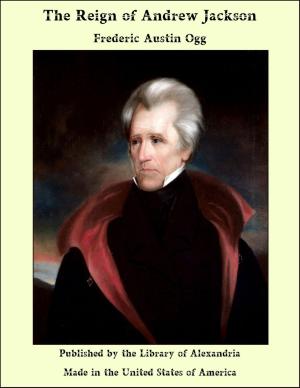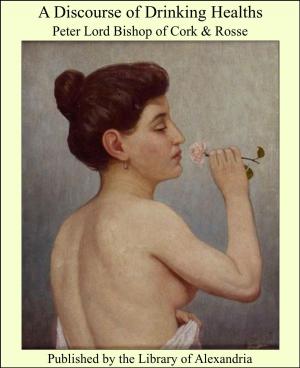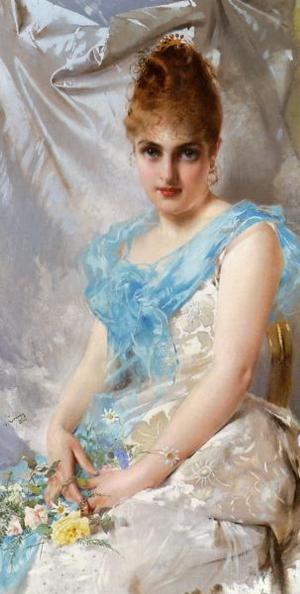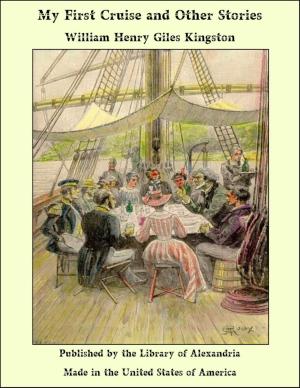The Mysteries of Heron Dyke: A Novel of Incident (Complete)
Nonfiction, Religion & Spirituality, New Age, History, Fiction & Literature| Author: | Thomas Wilkinson Speight | ISBN: | 9781465621658 |
| Publisher: | Library of Alexandria | Publication: | March 8, 2015 |
| Imprint: | Language: | English |
| Author: | Thomas Wilkinson Speight |
| ISBN: | 9781465621658 |
| Publisher: | Library of Alexandria |
| Publication: | March 8, 2015 |
| Imprint: | |
| Language: | English |
The First Gentleman in Europe sat upon the throne of his fathers, and the Battle of Waterloo was a stupendous event that still dwelt freshly in men's memories, when one bright August evening, Gilbert Denison, gentleman, of Heron Dyke, Norfolk, lay dying in his lodgings in Bloomsbury Square, London. He was a man of sixty, and, but a few days before he had been full of life, health, and energy. As he was riding into town from Enfield, where he had been visiting some friends, his horse slipped, fell, and rolled heavily over its rider. All had been done for Gilbert Denison that surgical skill could do, but to no avail. His hours were numbered, and none knew that sad fact better than the dying man. But in that strong, rugged, resolute face could not be read any dread of the approaching end. He was a Denison, and no Denison had ever been known to fear anything. By the bedside sat his favourite nephew and heir, whose christian name was also Gilbert. He was a young man of three or four and twenty, with a face which, allowing for the difference in their years, was, both in character and features, singularly like that of his uncle. Gilbert the younger was not, and never had been, a handsome man; but his face was instinct with power: it expressed strength of will, and a sort of high, resolute defiance of Fortune in whatever guise she might present herself. This young man carried a riding-whip in his hand; on a table near lay a pair of buckskin gloves. He wore Hessian boots with tassels, and a bottle-green riding-coat much braided and befrogged. His vest was of striped nankin, and he carried two watches with a huge bunch of seals pendant from each of them; while over the velvet collar of his coat fell his long hair. His throat was swathed in voluminous folds of soft white muslin, tied in a huge bow, and fastened with a small brooch of brilliants. Our young gentleman evidently believed himself to be a diamond of the first water. The August sun shone warmly into the room; through the half-open windows came the hum of traffic in the streets; a vagrant breeze, playing at hide-and-seek among the heavy hangings of the bed, brought with it a faint odour of mignonette from the boxes on the broad window-sills outside. A hand of the dying man sought a hand of his nephew, found it, and clasped it. The latter had been expressing his sorrow at finding his uncle in so sad a state, and his hopes that he would yet get over the results of his accident. "There is no hope of that, boy," said Mr. Denison. "A few hours more, and all will be ended. But why should you be sorry? Is the heir ever really sorry when he sees the riches and power, which all his life he has been taught will one day be his, coming at last into his own grasp? Human nature's pretty much the same all the world over."
The First Gentleman in Europe sat upon the throne of his fathers, and the Battle of Waterloo was a stupendous event that still dwelt freshly in men's memories, when one bright August evening, Gilbert Denison, gentleman, of Heron Dyke, Norfolk, lay dying in his lodgings in Bloomsbury Square, London. He was a man of sixty, and, but a few days before he had been full of life, health, and energy. As he was riding into town from Enfield, where he had been visiting some friends, his horse slipped, fell, and rolled heavily over its rider. All had been done for Gilbert Denison that surgical skill could do, but to no avail. His hours were numbered, and none knew that sad fact better than the dying man. But in that strong, rugged, resolute face could not be read any dread of the approaching end. He was a Denison, and no Denison had ever been known to fear anything. By the bedside sat his favourite nephew and heir, whose christian name was also Gilbert. He was a young man of three or four and twenty, with a face which, allowing for the difference in their years, was, both in character and features, singularly like that of his uncle. Gilbert the younger was not, and never had been, a handsome man; but his face was instinct with power: it expressed strength of will, and a sort of high, resolute defiance of Fortune in whatever guise she might present herself. This young man carried a riding-whip in his hand; on a table near lay a pair of buckskin gloves. He wore Hessian boots with tassels, and a bottle-green riding-coat much braided and befrogged. His vest was of striped nankin, and he carried two watches with a huge bunch of seals pendant from each of them; while over the velvet collar of his coat fell his long hair. His throat was swathed in voluminous folds of soft white muslin, tied in a huge bow, and fastened with a small brooch of brilliants. Our young gentleman evidently believed himself to be a diamond of the first water. The August sun shone warmly into the room; through the half-open windows came the hum of traffic in the streets; a vagrant breeze, playing at hide-and-seek among the heavy hangings of the bed, brought with it a faint odour of mignonette from the boxes on the broad window-sills outside. A hand of the dying man sought a hand of his nephew, found it, and clasped it. The latter had been expressing his sorrow at finding his uncle in so sad a state, and his hopes that he would yet get over the results of his accident. "There is no hope of that, boy," said Mr. Denison. "A few hours more, and all will be ended. But why should you be sorry? Is the heir ever really sorry when he sees the riches and power, which all his life he has been taught will one day be his, coming at last into his own grasp? Human nature's pretty much the same all the world over."















